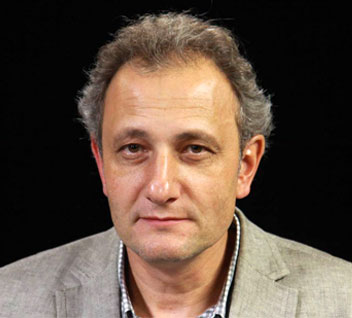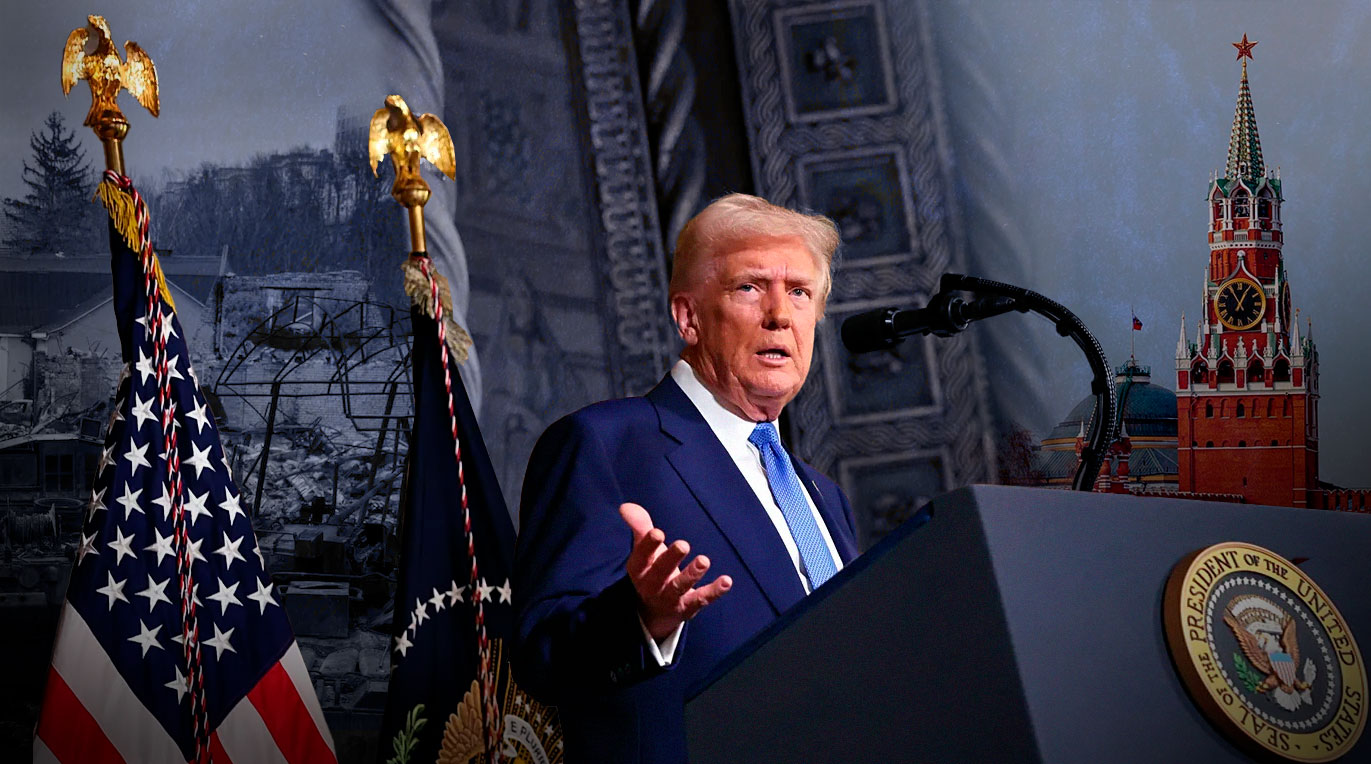 Sometimes a small signal can change the course of various events — whether in physics, biology, or politics. But the sketch of a peace agreement proposed by the US is not a small, but a big signal. And Trump himself acts as the synchrophasotron: according to the initial plan, by Thanksgiving everyone was supposed to agree, then sign, then celebrate Christmas, shedding this unnatural burden with the mysterious next “Slavic dispute among themselves”. And then preparations could begin — well in advance — for receiving the Nobel Peace Prize 2026.
Sometimes a small signal can change the course of various events — whether in physics, biology, or politics. But the sketch of a peace agreement proposed by the US is not a small, but a big signal. And Trump himself acts as the synchrophasotron: according to the initial plan, by Thanksgiving everyone was supposed to agree, then sign, then celebrate Christmas, shedding this unnatural burden with the mysterious next “Slavic dispute among themselves”. And then preparations could begin — well in advance — for receiving the Nobel Peace Prize 2026.
And yet. Despite the fact that the plan is clumsily drawn up, with strange points, as if it were composed in the company of many people, and someone was writing down all possible proposals on a scrap of paper, the very fact of its appearance sharply accelerated the possible exit from what is called a “war of attrition.”
Kremlin Theater
It must be clearly understood — and this, it seems, is not understood by the markets, starved for good “geopolitical” news — that in its presented form the plan is unworkable. However, it has already fulfilled its role as a trigger — everyone started discussing it and reacting in their own way. Vladimir Zelensky spoke about dilemmas and a difficult winter, formed a team to refine the points together with the Americans. The Europeans gathered for their own hural.
Putin responded in his usual manner: donned khaki, walked with the head of the general staff through the corridors of another bunker (and on the same day he had several meetings in the Kremlin, if these are not “canned,” and most likely not, because all week Moscow was in wild traffic jams due to visits from friendly leaders, which means the bunker was within quick logistical reach). He gathered generals who cheerfully reported on military successes. And already in civilian attire, he drew attention to military ways of forcing the opposite side to peace, indicating readiness to discuss peace proposals after all.
For this, a mise-en-scène was played out, similar to the one with the Security Council dedicated to the reaction to Trump's words about resuming nuclear tests: only that time the agenda was “broken” by speaker Volodin, and now — for balance — by speaker Matviyenko. It should be noted that one of the main issues on the agenda of Putin's “politburo” was the following topic: “on the strategy of actions of the Russian Federation to combat the practices of neocolonialism”. Not only is this capable of causing envy postmortem of the classics of the theater of the absurd Ionesco and Beckett, such a formulation of the question is pure whataboutism: a state engaged in neocolonialism itself accuses the West of it. While it is absolutely impossible to understand how neocolonialism manifests itself in today's circumstances “destructive neoliberal globalist forces” (or whatever is supposed to be said about the way of living peacefully and the habit of not blowing one's nose on the curtain).

In short, it “triggered” everyone, and no matter how one feels about Trump, he once again set the agenda not for the day, but at least for several days, if not weeks. Moreover, the 28-point plan became a provocation of sincerity. In a conversation with The Economist (fragments of the conversation with Arkady Ostrovsky and editor-in-chief Zanny Beddoes appeared online), Zelensky said that in the West there are those who would like a long war because it exhausts Russia, but for Ukraine, it would mean death. The new US special representative Daniel Driscoll visited Kyiv, and the Ukrainian team went to Switzerland for negotiations with the Americans. “The new old sincerity” of Putin manifested in the demonstration of military power. European officials accused Vitkoff of idiocy, but quickly, a couple of days later, sent their version of the agreement to Washington, and from the G20 summit in South Africa — that's how quickly you can work if there is an incentive. An emergency EU summit is scheduled for November 24, and here you can no longer get away with the prayer “Putin only understands the language of force”. And Trump himself suddenly on Saturday, November 22, stated that his peace plan is not final. This means the US president admits that when the baked turkey is carved for Thanksgiving, possible agreements will still be discussed and clarified. However, predicting what Trump will say in the next minute is completely impossible.
Frozen Unfrozen
As, indeed, is Putin. Even if by some miracle 20–30–40 points of the plan are agreed upon between the US, EU, Ukraine, and Russia, their practical implementation remains in question. Deliberate provocations with mutual accusations, violations of the ceasefire or demilitarized zone status — these are more or less obvious risks. The Kremlin, no matter how much it denies it, thinks in terms of territories, and therefore is generally interested in continuing, as Putin defines it, “armed struggle.” And therefore, in slowing down negotiations. The economic situation with barely restrained double-digit annual inflation and zero GDP growth is not a constraint for the commander-in-chief in continuing the “special operation,” which has already dragged on almost to the length of the Great Patriotic War. He will spend as many human and financial resources as necessary — as long as the system is not shaken, and the limits of the masses' patience, tired of the war, are not entirely clear.
The stability of a possible agreement is comparable to agreements on Gaza — and now Hamas has “notified” the US that it is ready to resume hostilities. As Nikolai, a character from the immortal film “Moscow Does Not Believe in Tears,” said, in the world “there is no stability.” Nevertheless, an unstable frozen state is better than a situation of permanent human death.
In a frozen state, conflicts, as world experience shows, can remain for decades. There is suspicion that what is delicately called the “Ukrainian conflict” can remain in such a form, with risks of thawing, for decades — unless fundamental political changes occur within Russia itself. And this shifts the assessment of the situation to another level of analysis and understanding: it is impossible to simply freeze the confrontation, to discuss that “Putin can attack again”, without thinking about the future of Russia. If it remains a wild field and a generator of permanent threat — hybrid, ideological, military — the cessation of the hot phase of the “existential” conflict does not solve the fundamental problem of the future world. After all, what is happening, if we speak in the Kremlin dialect of the Russian language, is a problem of confrontation of “values.” And not at all those that stand in garages or are cast in granite of a hundred real estate objects of the Russian “elite,” but those that lie at the foundation of understanding the categories of good and evil.
Undoubtedly, the understanding of what is happening and the future self-determination of Russia is the business of the Russians themselves. But for the West to expect success in building a peaceful world in the future, it is necessary to separate the Russians from Putin, the Russian civil society from the state. This requires mental effort, but if you seriously think about the future and sustainable development, you will have to deal with Russia, including continuing “Russian studies.”
But, undoubtedly, first, people must stop dying. At least gradually, the bitterness and brutality must fade. This is not beneficial to Putin. Therefore, any efforts to agree on a peace plan are meaningful. The Kremlin will consider this a victory. But the state of peace is already undermining Putin's system, based on the industrial generation of chaos and crises.
* Andrey Kolesnikov is considered a “foreign agent” by the Russian Ministry of Justice.
Photo: Pool via AP Photo.